Influencing Global Dialogue — Alumni Profile, Amanda J. Bradley ’90
Amanda J. Bradley ’90 now combines her passion for world languages and the environment, alongside a commitment to empowering vulnerable communities, on the international stage.
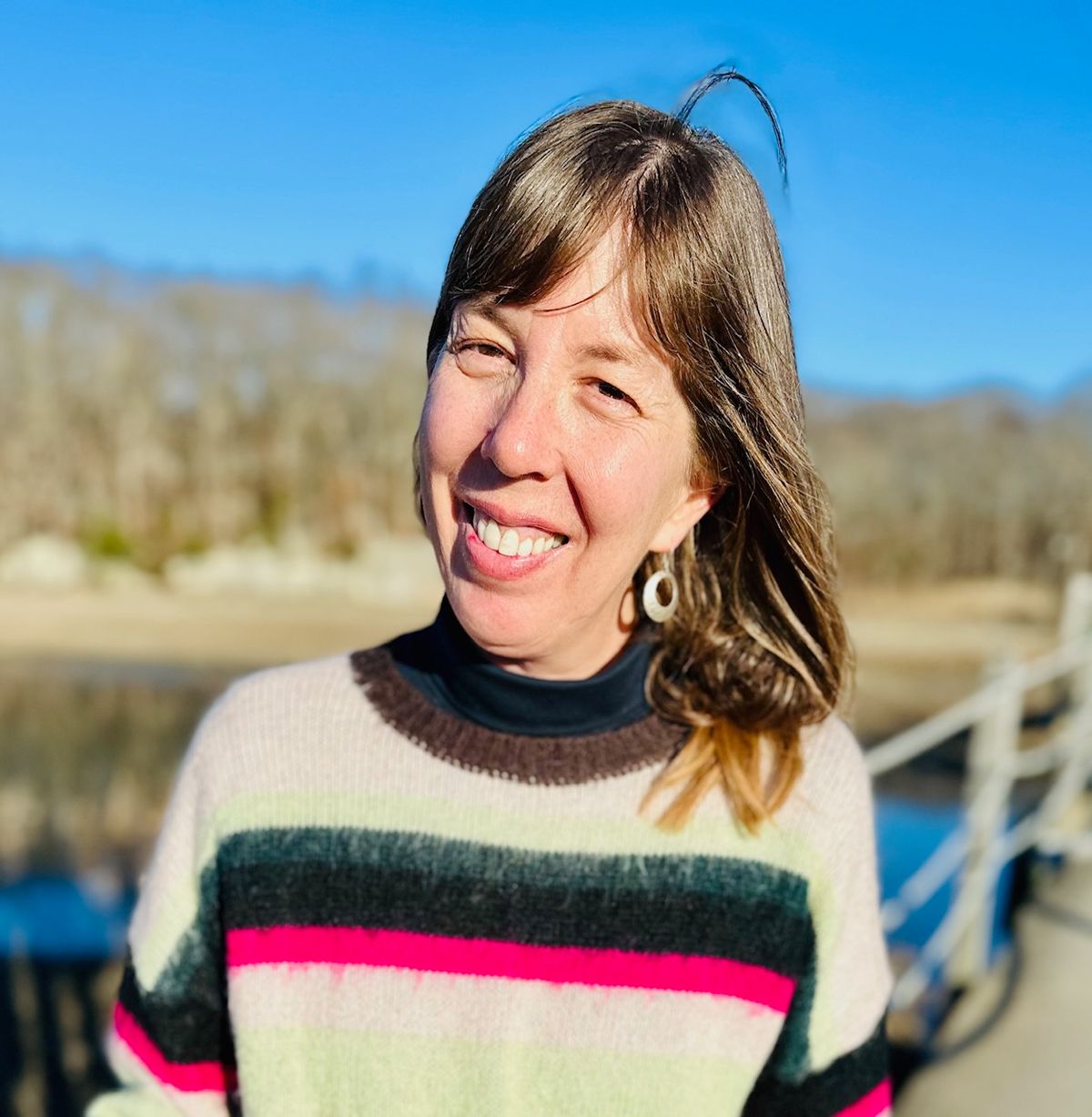
Amanda J. Bradley ’90 has never been one to stay in place long. She logged onto our Zoom interview from Rome, Italy; her work overseeing United Nations development projects takes her across Africa; but her path to the U.N. began only a few hours away from Amherst, in Guilford, Connecticut.
Guilford, Connecticut
Growing up, travel was a natural part of Bradley’s life. Her mother and father immigrated to the U.S. from Ireland and England, respectively. Although she spent most of her time in Guilford growing up, her father’s job as a pilot for American Airlines gave the family a chance to regularly travel back to the U.K. Bradley described her childhood as “privileged,” and emphasized her parents’ commitment to education.
“They [thought] that this was one of the best things about the U.S., that there [are] public schools and some of them are quite good,” she said. “So they moved and chose the town based on the school.” A self-described “nerdy kid,” Bradley thrived in her classes, particularly in the humanities. She credits her high school French teacher, Madame Cohen, for making the language “come to life.”
“She prepared so much for our class, she had us reading French poems, reading French books … and she also took us to France on a school trip,” Bradley recalled.
Despite her budding interest in the language, Bradley’s decision to come to Amherst wasn’t influenced by the strength of its French program. Bradley did not know what she wanted to major in and she did not know if she wanted to stay close to home or not, so she applied to a wide range of colleges.
“In high school, it’s quite challenging, I think, to figure all of that out — when you don’t know exactly what you want to do and lots of people tell you lots of different things,” she said. She was ultimately drawn to the close-knit community at Amherst. “It’s sort of in a small town like the town where I come from, Guilford, so I felt immediately kind of comfortable in the environment … and I felt like in a big university I might get lost in the crowd.”
Amherst, Massachusetts
However, not everything was comfortable once Bradley arrived at Amherst.
“There were a lot of parties, a lot of beer … it was like that was the main option for socializing,” she said. “I had fun, but now that I think back on it, it was a bit too much, maybe.”
Soon enough, however, Bradley found her place on campus. During our conversation, she remembered biking around the Pioneer Valley, sledding down Memorial Hill atop a Val tray (“that was probably really stupid”), exploring art classes, and playing tennis. She also continued to pursue her interest in languages, majoring in French and adding both Japanese and Spanish to her list of classes by her sophomore year. Her studies took her overseas for the entirety of her junior year, first to Spain, and then to Japan, alongside a “lucky” placement in the holiday town of Corsica, France during the two summers she worked as an au pair. When she was on campus, she enjoyed the “relaxed” environment of staying over break, but also spent time volunteering as an English tutor to new immigrants in Lowell, Massachusetts, which she described as “a bit of a drive.” “It was funny,” she said. “I [got] to know this Cambodian family a bit … and then I ended up going to Cambodia and living there for 14 years.” Reaching that stage of her career, however, would take several years — first, Bradley headed for Japan.
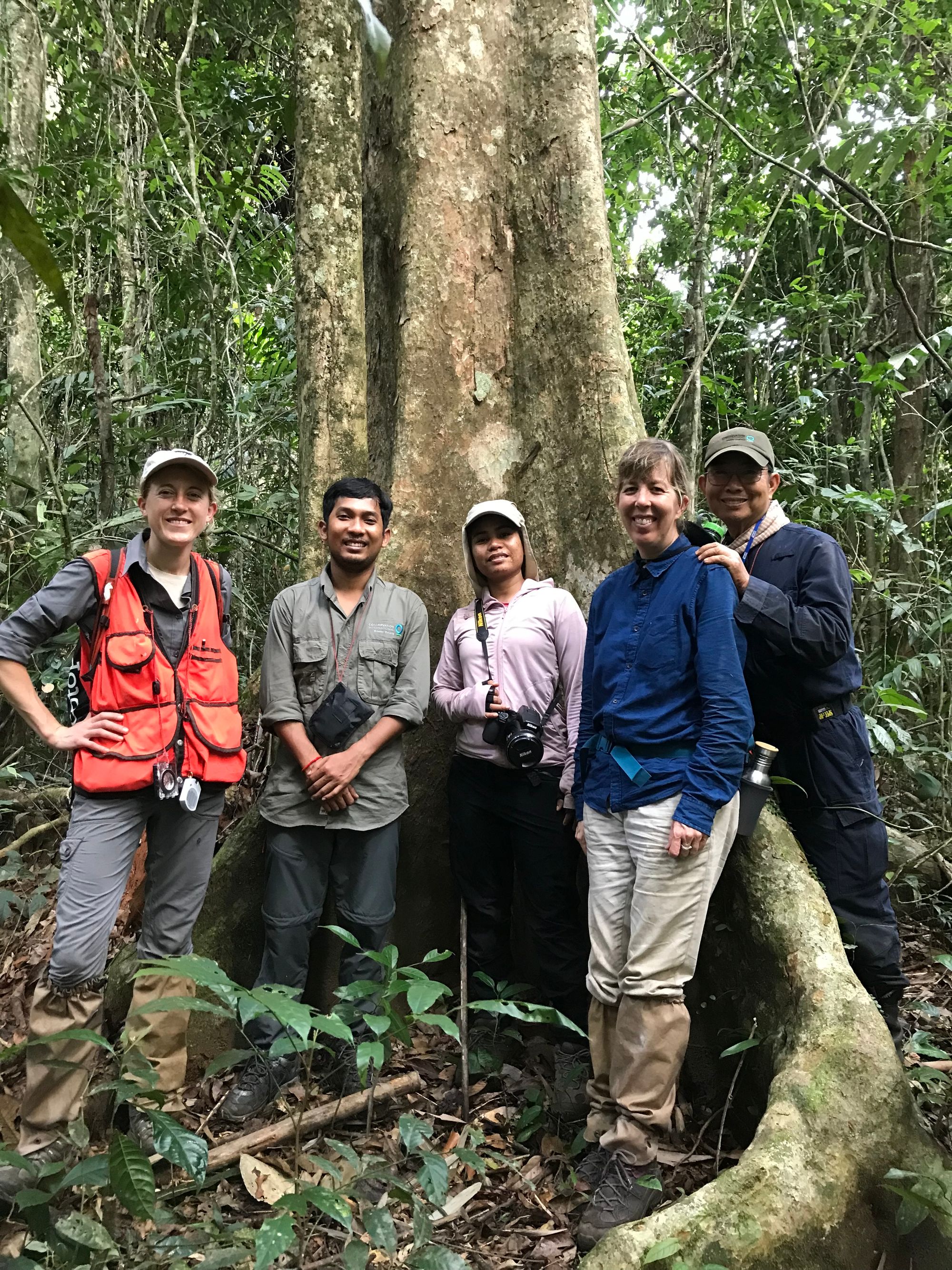
Osaka, Japan
Immediately after graduation, Bradley decided to perfect her Japanese and enrolled in an “intense” one-year program to bring herself up to the professional level. She then worked as an administrative assistant at Sanyo Electric Trading Co. in Osaka, Japan, to save money, before taking the next year off to backpack in Asia with her boyfriend at the time.
“[It was] very rough, shoestring budget … and an incredible year. No regrets [about] that. It was learning something every day, discovering new places, meeting lots of people, and getting sick once in a while.” Afterwards, she returned to administrative work, but she knew that wasn’t where she wanted to stay. A bit reluctantly, she realized that a master’s degree would be beneficial in helping advance her career. “At first, I wasn’t so keen. I always thought, ‘Okay, I went to Amherst. That should be enough.’”
She had begun to learn about Sanyo’s environmental standards and recycling responsibilities while working in Japan, which sparked a desire to learn more about environmental issues. Amherst had no environmental studies courses when Bradley was a student, so she decided to take advantage of the “design-your-own” model at the Fletcher School at Tufts University, combining a focus on international relations with environmental studies courses from schools in the Boston area. Afterwards, she returned to Japan and worked in politics for a year, before moving to London and volunteering for some time. “I wasn’t sure what to do,” she recalled.
While working in the Japanese parliament, she had received a report from Global Witness, an anti-deforestation NGO based in London.
“I really loved this report because it was so detailed, it had so [many] concrete facts … I was carrying it around with me because the group was based in London, and I called them up one day and I said, ‘You know, I’m really interested in what you’re doing’ [and] they said ‘Well come on in, and let’s see.’”
That interview ended in an offer for a one-year position in Global Witness’ new Cambodian office. Ultimately, Bradley ended up staying in Cambodia for more than a decade, working for various NGOs focused on environmental issues.
Cambodia & Rome
The job she was doing in Cambodia was a marked departure from her previous administrative roles, but to Bradley, the change was the main appeal.
“I loved living there, and I loved the work,” she said. “I didn’t have any management experience … I was willing to go to Cambodia, [which] a lot of people weren’t interested in, so I had a lot of freedom … I got to travel all over the country and design different projects, hire staff, [and] manage staff.” Unsurprisingly for Bradley, she also began studying Khmer immediately upon her arrival.
Fieldwork was a “constant challenge,” but “really rewarding as well,” and she credits the depth of her field experience in Cambodia with helping her land her current position with the Food and Agriculture Organization (FAO) of the U.N. Bradley now works at a much larger scale: Funded by various donors and the Green Climate Fund, the projects she manages span 15 countries in West Africa, the Congo, and Zambia. “I use my French, finally,” she joked.
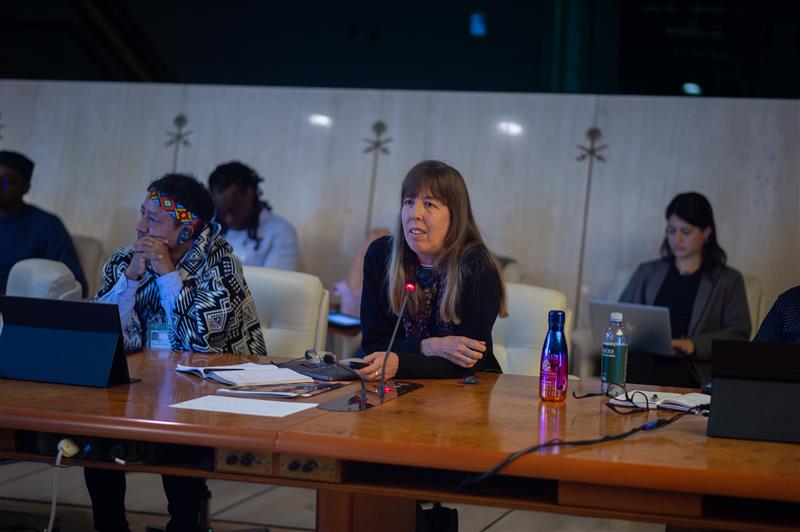
The UN-REDD Programme is the U.N.’s primary advisory partnership on forests and climate change; Reducing Emissions from Deforestation and Forest Degradation (REDD+) is a climate change mitigation strategy focused on forest management and conservation. Coordinating with two other U.N. agencies, the Environment Programme and the Development Programme, Bradley focuses on issues of tenure — the ways in which people gain access to land and natural resources, and the laws and systems governing that access — gender, and Indigenous Peoples within the REDD+ program.
A typical day for Bradley now might include evaluating women’s participation in a project’s implementation, traveling to the project site and training teams on gender issues, drafting a report on the REDD+ program’s overall progress on gender equity for the board, or organizing media campaigns like the International Day of Rural Women to draw attention to their vital role in managing forests and mitigating climate change.
Although Bradley may oversee the U.N.’s development projects, community buy-in is key to the process.
“[In] most countries where we’re working, people are generally quite open to having support for livelihoods, or new farming practices, or forest conservation … so we don’t face too much opposition in general,” she said.
That is not guaranteed, however, and Bradley’s work includes training national staff on organizing workshops to explain the proposed projects and build trust around the activities. The U.N. is required to use a framework known as Free Prior Informed Consent (FPIC) for working with Indigenous communities under the U.N. Declaration on the Rights of Indigenous Peoples, but Bradley emphasized that it is a best practice for working with all local communities.
“It gives people a greater sense of ownership … They know everything they need to know, and they decide ‘Yes, we will participate in this,’ or just as possib[ly], say, ‘No, we do not want to participate.’”
Finding Her Place
Looking back on her career, Bradley celebrated the “small-scale” improvements she’s contributed to.
“I’m really happy with the local NGO that I helped to set up [in Cambodia],” she said. “It ran for 20 years or so, and increased environmental awareness throughout the country. There’s a national radio program and lots of different projects … but I think what was great was that a lot of people worked for the organization and they learned new skills and developed their capacities and knowledge and appreciation for the environment and natural resources in the country.”
She stressed that the FAO’s work alone cannot solve the issue of deforestation. “It’s driven by the needs in the U.S. and Europe, for more chocolate and different agricultural goods … rubber, cashew nuts, all these different commodities, we see a lot of pressure on forests. It can be quite disheartening sometimes.”
However, on the FAO side, she is proud of the communications work that she has done. “When I’m able to publish articles that go out quite widely through U.N. channels, FAO channels, you never know who’s reading them … I think that’s sort of normative work that can influence a global dialogue on some of the key issues around environment and safeguards, Indigenous peoples, land, tenure, rights.”
It is the kind of work that prompted Bradley herself to enter the field, but there is still more to be done. “[In] some countries, especially in Africa, there’s a lack of good data, good information,” she said.
She also looked back fondly on her somewhat winding path towards the FAO. “I was very lucky and privileged to have the opportunity to go to Amherst,” she said.
Her advice looking back on her time at Amherst?
“Don’t worry too much if you don’t know exactly what you want to do after graduation, maybe take your time, and don’t be afraid to change course,” Bradley advised. “Try to find a type of job that you would enjoy on a day-to-day basis, but something that will also bring meaning.”


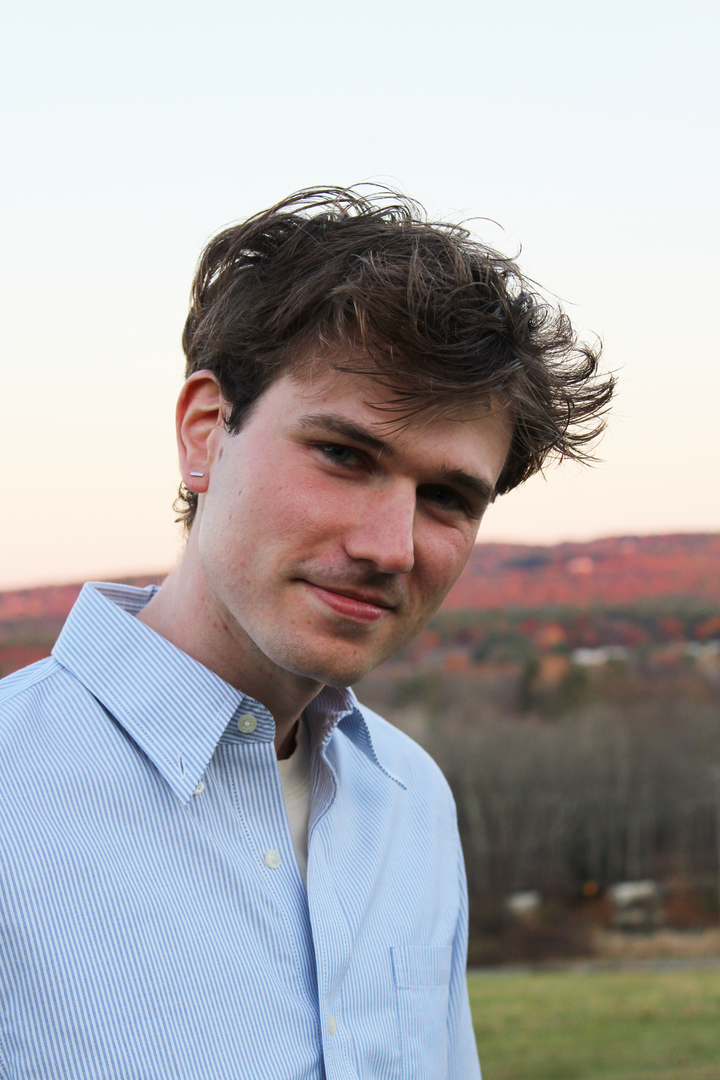

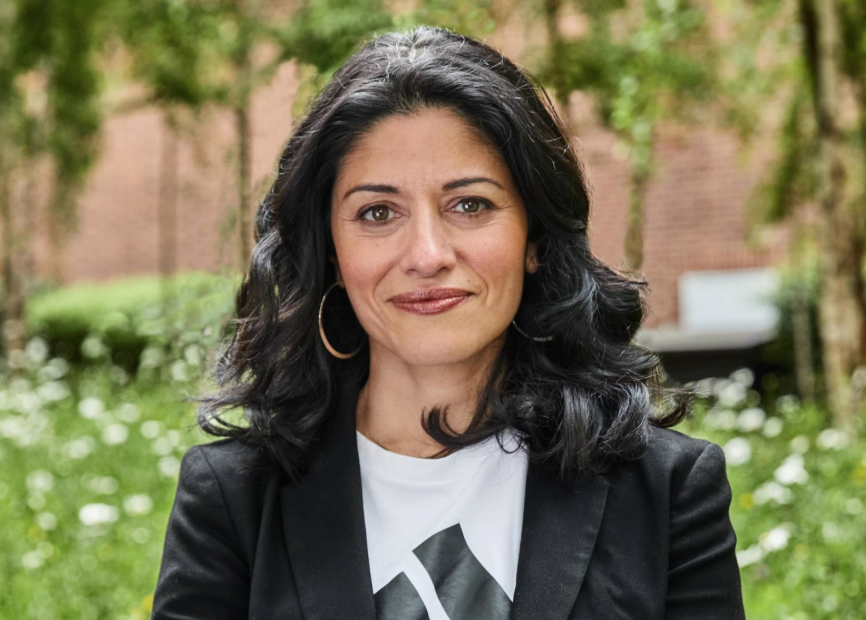
Comments ()